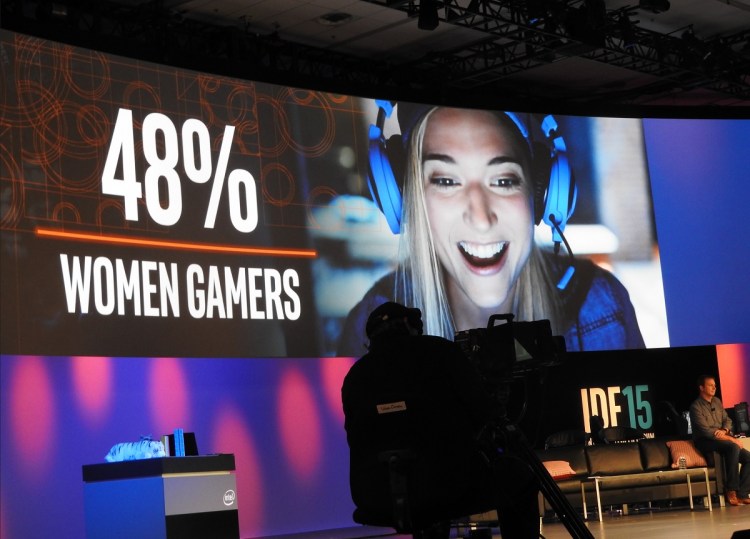About half of all American adults say that they play games. But only 10 percent identify themselves as “gamers,” according to a report by the Pew Research Center.
The survey digs into some of the perceptions that we have about video games as a pastime for nerdy young males. I suppose that makes sense, as video games become a bigger part of mass culture. After all, who identifies themselves as a “movier”?
About 50 percent of men and 48 percent of women say they play games. But 60 percent of those surveyed said that they believe most people who play games are men. Pew found that 15 percent of men and 6 percent of women referred to themselves as gamers.
In the 18-to-29-year-old age group, 33 percent of men viewed themselves as gamers, while 9 percent of women did. 35 percent of those who play video games believe they are not a waste of time, while 53 percent of those who identify themselves as gamers feel the same.
The survey also looked at perceptions about whether games portray women and minorities poorly, if people believe that violent games promote aggressive behavior, and whether people believe that games encourage positive attributes such as problem-solving skills, communication, and teamwork.
About 40 percent of adults believe that violence in video games is related to violent behavior. About 53 percent of the public disagrees with the statement that “people who play violent video games are more likely to be violent themselves.” Thirty-two percent of those who play games themselves say they see a connection between games and violence, while only 26 percent of gamers say they see the connection. Women are more likely than men to believe (47 percent to 31 percent) that people who play violent games are more likely to be violent themselves.
About 47 percent of adults are unsure if games portray minorities poorly, and 40 percent are unsure about the portrayal of women. Thirty-three percent of those who play video games (and 46 percent of self-described gamers) do not think that minorities are poorly portrayed in games. 26 percent of those who play video games (and 35 percent of self-identified gamers) do not think that women are poorly portrayed in most games.
As for problem-solving and strategic thinking, 17 percent of adults think that games have a positive effect on these attributes. Forty-seven percent think this is true of some games, but not others. Only 10 percent of adults think that games promote teamwork and communication.
The survey of a couple of thousand people, which was conducted in June and July of this year and was based on a random sample of English-speaking or Spanish-speaking phone users.
VentureBeat's mission is to be a digital town square for technical decision-makers to gain knowledge about transformative enterprise technology and transact. Learn More

